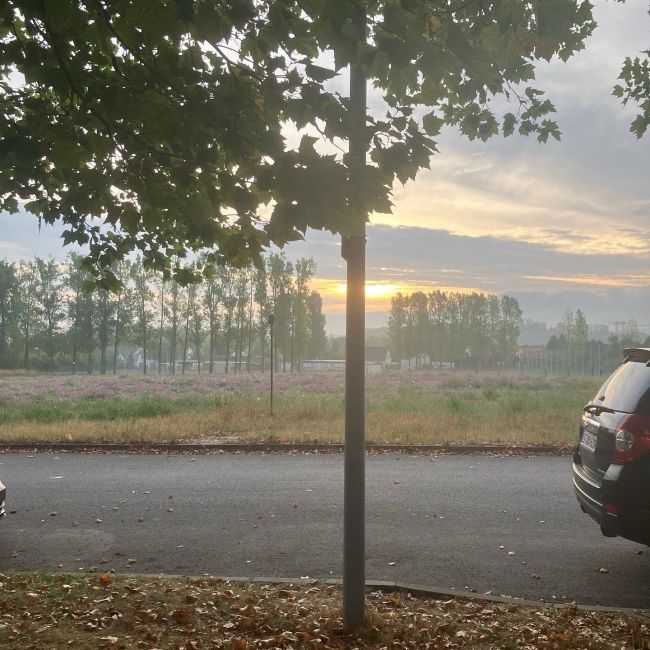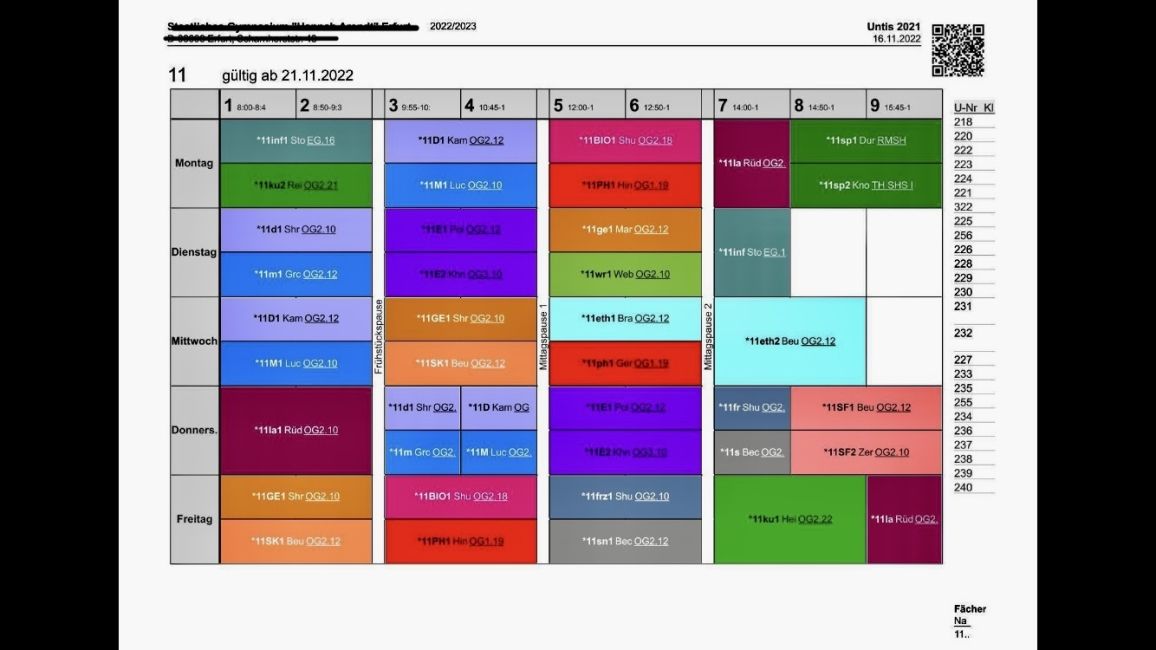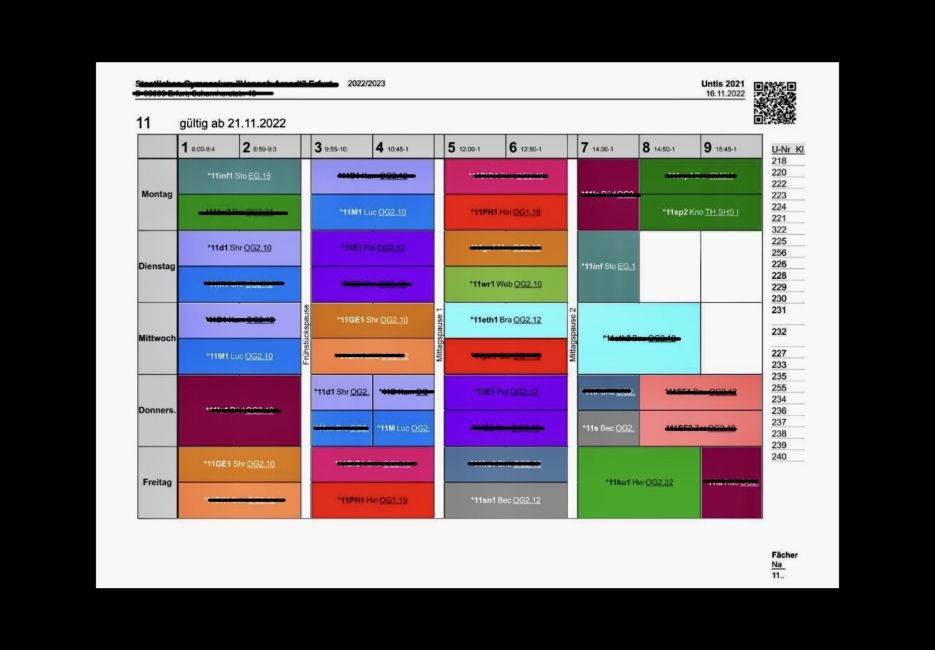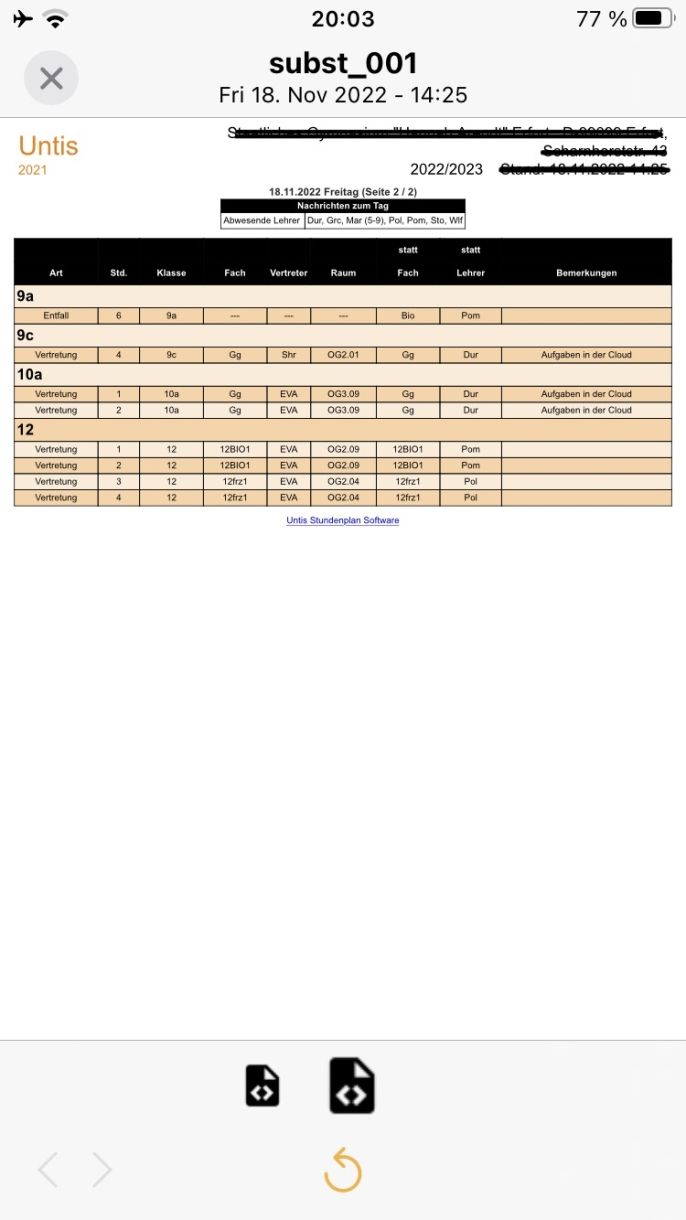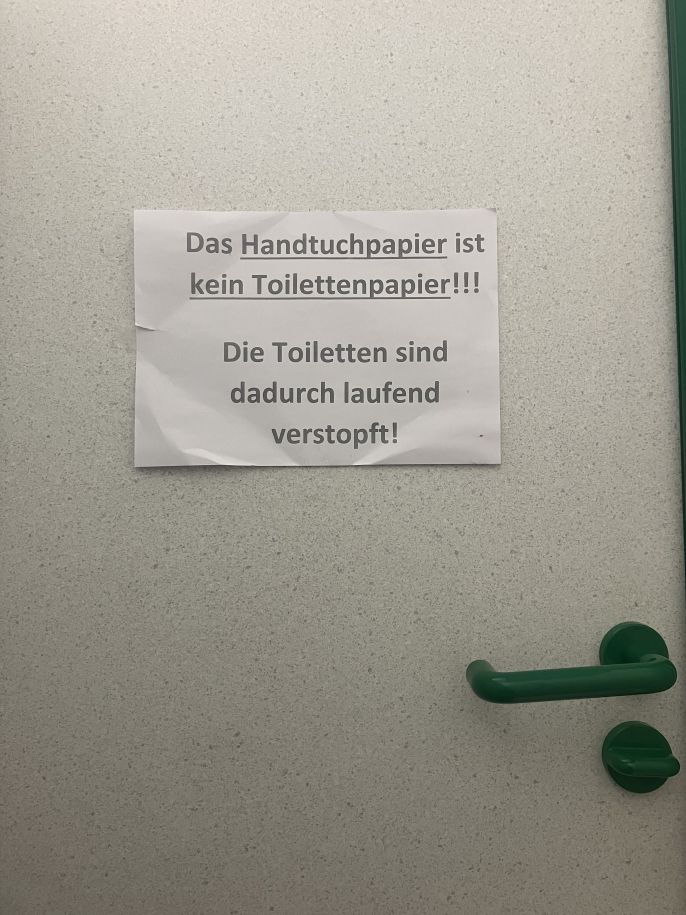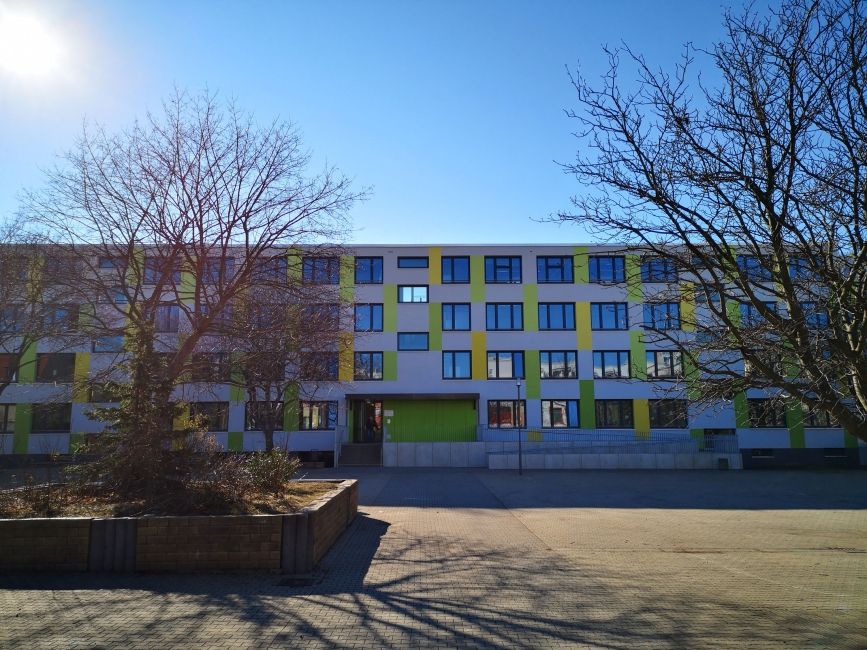German Highschool From an American Perspective
Last May, after spending four years struggling through science tests and English essays, I finally reached one of the major stepping stones in any teenager's life - graduating high school. However, despite the glee I felt switching the tassel from the left to the right of my graduation cap, silently rejoicing that my days of worrying about grade point averages, AP content, and SAT scores were over, I also knew that my time spent in high school classrooms was not exactly finished…
I get that not everyone understands my decision to spend another year in high school, albeit in Germany. After all, one of my friends from back home jokingly called me his “favorite super senior”, then switched it to “favorite super junior” after I told him I was actually in the elfte Klasse (eleventh grade). But for me, spending a gap year in a German high school was probably one of the best decisions I ever made for my education, as it has allowed me to meet tons of new people, helped my German improve immensely, and given me a direct insight into a different educational system. In fact, German school is different in so many ways (the main language included), it doesn’t feel like an extension of my American educational experience, but rather a whole new chapter of learning.
One of the biggest differences about German schools is that not everyone goes to the same type of high school, and are instead divided based on post-secondary education plans (specifically whether or not they will attend a university). I do not feel super qualified to explain the differences between schools, but I highly suggest you research them if you're interested, because the system is completely different than in the US! I personally go to a Gymnasium, as do most CBYXers, which is a type of school for students who plan to go to university. Another major difference is that my schedule looks different every day! For example I can have computer science, math, physics and sport one day, then computer science, Deutsch and English the next. I am including a picture of the elften Klasse schedule above (the first picture with tons of colorful boxes), although I know it might be a little confusing. Essentially each row is a different day, and the columns are time periods. For most time periods there are two different classes offered that students get to choose between (ie. the column with 11PH1 and 11BIO1 means you get to choose between upper level physics and biology). There are also some periods where I don’t have a class at all (ie. all the ones with 11la, or Latin). The final major difference is that if a teacher is sick or otherwise absent, there are no substitute teachers and instead class is completely canceled. We have an app that lists all the teachers that are absent, as well their classes that have been canceled. Sometimes there will still be work assigned, often labeled by “Aufgaben in der Cloud”, meaning there is an assignment in the SchuleCloud (Thuringia has a special website for all of its schools in the state, the SchuleCloud, which teachers use to post and receive assignments).
Some other fun facts about German schools:
- My school is an iPad school, which, from talking to other CBYXers, seems to be the case for the majority of German schools. This is definity a contrast to my school in the U.S., as everyone used school issued Chromebooks. For my Gymnasium, everyone is issued an iPad and keyboard, but you have to purchase an apple pencil yourself.
- Toilet paper is usually outside the stall, and you grab as much as you need before going in. I have absolutely no idea why this is, and it was definitely a shock to use the school’s restroom for the first time!
- Rather than have one major lunch break, my school has roughly 30 minute breaks between each set of classes (one hour 35 minutes) and students snack throughout each pause.
In most Gymnasiums students choose to take three or four “higher level” classes, and then fill out the rest of their schedule with standard level classes. The “high level” classes tend to meet more often and cover harder content, and are usually chosen based on what future career or major the student wants to pursue (ie. students who want to become doctors tend to take upper level biology). My class schedule is as follows:
Higher Level Courses:
Gresitche/History: Currently my history class is analyzing major 18th and 19th century revolutions, particularly the American and French revolutions, which luckily I spent a lot of time learning about in high school. A normal day of class consists of reading and analyzing the textbook, then discussing it as a group. Unfortunately, due to the high level difficulty of the texts we read and discuss, it is often hard to follow everything being said, although my prior knowledge of the subject definitely helps. I do my best to at least somewhat understand what is going on, which is definitely reliant on my online translator. I participate quite a lot in this class (although not necessarily always willingly, haha), thanks to my teacher, who makes me read different sections of the text out loud. It always sounds quite horrible, since I just started learning German this year and the texts are always a couple hundred years old, but I just keep telling myself that it is good for improving my language skills. This class is also our “homeroom” of sorts, so some days we will receive papers to fill out or plan an upcoming field trip.
Mathematik/Math: By far my favorite class! I really enjoyed math in the United States, and it turns out math is pretty universal (who knew??). There are of course a few differences (for example a decimal point is a comma here), but overall most things are the same. We are currently starting basic calculus (mostly derivatives) and since I took AP Calculus already, everything we learn is review, which makes learning it in another language quite doable. I even got a 1- (1+ being the best) on my first test! My ability to solve word problems still needs a bit of work though…
Physik/Physics: Physics is perhaps my least favorite subject of all time, and I barely understood it in English, so trying to learn it in a different language is nearly impossible. Our current unit is “Electrisches Feld”, we have done a few experiments with electric circuits, and quite honestly I can’t tell you much more than that. According to some of my American friends who are actually decent at physics, this unit is normally pretty difficult, even when you speak the language. One interesting thing I have been able to pick up on is that the formulas we use have variables that correspond to the English term (ie. v = velocity), rather than the German word.
Other classes:
Informatik/Computer Science: Aside from elementary school Khan Academy lessons, I have absolutely no programming experience, which makes a (Java Based) Computer Science class somewhat difficult, especially since the majority of my peers already learned Python. Still, I actually really enjoy this class, particularly because the teacher is really nice and the coursework is for the most part fun (even if I don’t always understand it!). One of my favorite parts of the class is an app for which we get assignments to program a small ladybug on. I have been asked if computer code looks different in German, and from what I can understand it is similar to physics formulas, in the sense that the coding terms remain the same as they are in English, despite no longer corresponding with the German language.
Englisch/English: In Germany, learning English is now mandatory for all students, meaning Germans start learning it at a young age (usually early elementary school) and by the eleventh grade are quite proficient. The class is conducted entirely in English, and is currently focused on improving grammar, reading comprehension and writing, with a central theme of life after high school. I really appreciate having this class, as it is a nice biweekly breather from constant German, even if the classwork can be a bit on the easier side. Furthemore, I only talk with my friends and classmates in German, but in this class they can only speak English, so it is a nice chance to get to know each other in a language I can communicate better in!
Sport: Sport class, much like the name suggests, is the German equivalent of an American P.E. class. For my school specifically, we have P.E. every Monday for two hours. The girls and boys are divided into separate classes since part of this year’s curriculum is swimming and we are too large of a class to go all at once. The girls will not be swimming until next semester (something I am very much looking forward to!), so for now we are doing step aerobics. I am personally not a large fan of dancing to begin with, and therefore dancing with a step is somewhat unenjoyable - a sentiment echoed by many of my classmates. However, I do enjoy our warmups as we spend the first half an hour or so jogging, but the sports teacher always makes it really fun. For example, during our last class, we played a variation of musical chairs with the steps we use for dancing.
Wirtschaft und Rechts: Essentially the equivalent of a class on economics and law, Wirtschaft und Rechts is perhaps the class where I have the least amount of understanding. The class is lecture based, and in the rare moments when there are notes to accompany them, they are almost completely illegible. I do think I am slowly starting to understand what we are learning (last class including topics such as inflation and Qatar hosting the World Cup), but I still have a long way to go!
Ethik/Ethics: Another German requirement for students is a religion class, usually focusing on the Catholic or Protestant religion, or when that is not available or the student is not religious, an ethics class can substitute. My school only offers ethics, so that is what I am taking! We are currently finishing a unit on “Was ist Wahrheit?” or “What is truth?”, and have spent a lot of time discussing Plato’s Allegory of the Cave. Since my German is not quite at the level to contribute to conversations on the subject, I mostly focus on trying to comprehend my classmates’ points of view, and I often read the texts in English so I fully understand what is being discussed.
Kunst/Art: I was super excited to have an art class and a chance to participate equally with my peers regardless of the language barrier. Howere, it turns out that art class is completely different here in Germany (or that’s just the case with my art teacher). Art class seems to be more along the lines of art history class, and we took two tests before even touching a paintbrush. Luckily, we finally started making art (rather than learning about it) last class, during an exercise where we tested out different techniques of applying paint to paper (ie. with brushes, spackles, splattering, etc.).
Spanisch/Spanish: Even though Germans are already required to learn English, students who attend Gymnasiums also have to learn a second language, often French, Spanish, Latin, or Russian. However, these second language classes are not started until around middle school age and are often a lot more chill than English. I took Spanish back in the United States for about the same amount of time all my peers have, so this class is one of my easier ones, although translating between Spanish and German directly is definitely difficult. I have also found my Spanish knowledge getting rustier the more time I spend focusing on German, but I am hoping that my Spanish will all come back to me if I work on it more in the future. Like I said, second language classes tend to be on the chill side, so a lot of our Spanish class involves watching movies, but we also have a textbook we read stories out of and then discuss.
Deutsch/German: Similar to how English classes in the United States focus on English literature and grammar, Deutsch classes often include discussing different novels or analyzing sentence structure. So far, my Deutsch class has only done the latter, and we have covered everything from capitalization (much harder in German than in English), word combinations (also an aspect of grammar mostly unique to German), and parts of speech. This class is hard for my German peers, so you can imagine how difficult I find it. I consider understanding what topic is being discussed, not even what is being said about it, a win. The biggest takeaway from this class? German is really, really hard.
As you can see, I have a ton of classes - eleven to be exact - which is almost double the amount I took my senior year! I definitely wasn’t expecting a German school experience to be so different from my American one, but I am so glad I have gotten to learn so much about another educational system!
If you have any questions about school in Germany, or about my exchange year in general, please feel free to reach out to my instagram account, @elizlovesbread.
Until next time,
Tschüss!
Elizabeth
Related Posts

German Holiday Traditions: Christmas Camels?
I went to the Christmas market expecting the familiar comforts I’ve come to associate with December here in Germany.
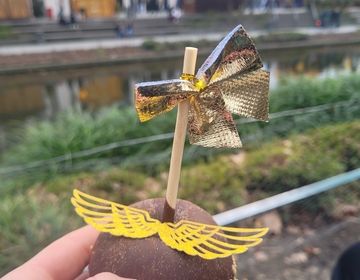
A Winter Wonderland: Germany's Christmas Markets
I pull up the hood of my jacket to block the biting cold winter air, walking past the auto barricades and into the Christmas market.

A Very Festive German Christmas
As Andy Williams croons, Christmas is the “most wonderful time of the year,” and the Germans truly work to make the season a yearly miracle.
